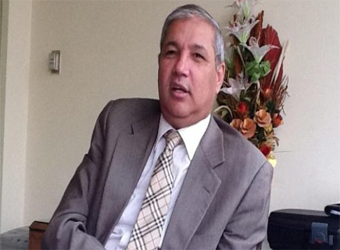At a major regional energy conference, the leading investment company in Africa and the Middle East highlights the need for an integrated approach to the region’s energy problems and showcases its ‘triple combo’ fundraising strategy targeting DFIs, SWFs and Export Credit Agencies.
Citadel Capital (CCAP.CA), the leading investment company in Africa and the Middle East with USD 9.5 billion in investments, participated today in the 4th General Conference of Arab Union of Electricity and Exhibition.
The conference was held to discuss investment opportunities in the regional energy sector. Mohamed Shoeib, Managing Director of Citadel Capital’s Energy Division moderated a panel on the role and benefits of private capital in the power and alternative energy sectors in the region, with some of the topics discussed including the general financing requirements for such projects and the institutions involved in financing them.
“Despite the GCC accounting for around 54% of the world’s conventional oil reserves and around 40% of global natural gas reserves, the inevitability of our one day reaching a ‘peak oil’ stage is undeniable, making the search for renewable and alternative energy solutions a particularly pressing issue for our generation as we seek an optimal balance between conventional and renewable sources of energy,” said Shoeib.
Citadel Capital has a long-standing interest in alternative and renewable energy, dating to the time of its acquisition of ENTAG and ECARU as the nuclei of Tawazon, its platform for investment in the solid waste management sector. Tawazon is an important part of the firm’s energy arm owing to its waste-to-energy emphasis, where it produces RDF for use by industry as an alternative feedstock for their own power needs.
According to Shoeib, an integrated approach from a multiplicity of sources along the value chain — upstream, midstream and downstream — stretching from petroleum to electricity to renewables is required in order to come up with a solution that truly tackles the energy problems that the region faces today.
Continued Shoeib, “However, with regional Governments outside the GCC facing sharp balance sheet constraints preventing them from funding large-scale infrastructure projects, and the turbulence in the European markets (a leading source of project finance in the past), as well as concerns over the post-Arab Spring climate, securing funding for such large-scale projects is becoming increasingly difficult. What we need therefore are bold and innovative approaches to fundraising.”
Citadel Capital has pioneered a proven methodology to counter this dearth in funding, by first reducing a project’s financial and political risks prior to marketing it to investors, and then targeting the ‘triple combo’ of still deep-pocketed institutions — Development Finance Institutions (DFIs), Sovereign Wealth Funds (SWFs), and Export Credit Agencies.
“DFIs in the US and Europe have specific mandates to promote growth and stability in the Arab world, while credit export agencies — particularly in Asia — are keen to fund projects in strategic regions where they are keen to promote the export of goods and services from their respective countries,” said Shoeib. “Moreover, SWFs — particularly in the GCC — have mandates to invest in the region and a distinct preference for North Africa.”
Most recently, the ‘triple combo’ was deployed June 2012 to great effect, helping Citadel Capital reach financial close on the Egyptian Refining Company (ERC), a US$ 3.7 billion greenfield oil refinery that was kept on track despite the Global Financial Crisis, the European Sovereign Debt Crisis and the Fukushima nuclear meltdown, and represented the largest instance of inward investment in Egypt post-revolution.
“As ERC shows, it is possible, given the current climate, to bypass the traditional sources of project finance in the region — large national and European commercial and investment banks — to successfully launch a large-scale energy project such as this one,” said Shoeib. “It is important to remember, however, that key to securing financing via this method is not just the financial viability of the project, but also its lasting social, environmental and economic impact.”
The Conference was organized by the Arab Union of Electricity (AUE). Founded in 1987 to improve the development, generation, transmission and distribution of electrical energy in the Arab World, the AUE is headquartered in Amman, Jordan, and is formed of 19 member states including Saudi Arabia, Kuwait, the UAE, Qatar, Algeria, Libya and Egypt.
Energy is one of five core industries on which Citadel Capital focuses alongside mining, agriculture and consumer foods, transportation and logistics and cement manufacturing. The firm operates and owns a number of platform companies in the energy sector including energy distribution platform TAQA Arabia, fuel bunkering and storage operation Mashreq, waste management platform Tawazon, and the Egyptian Refining Company (ERC).



